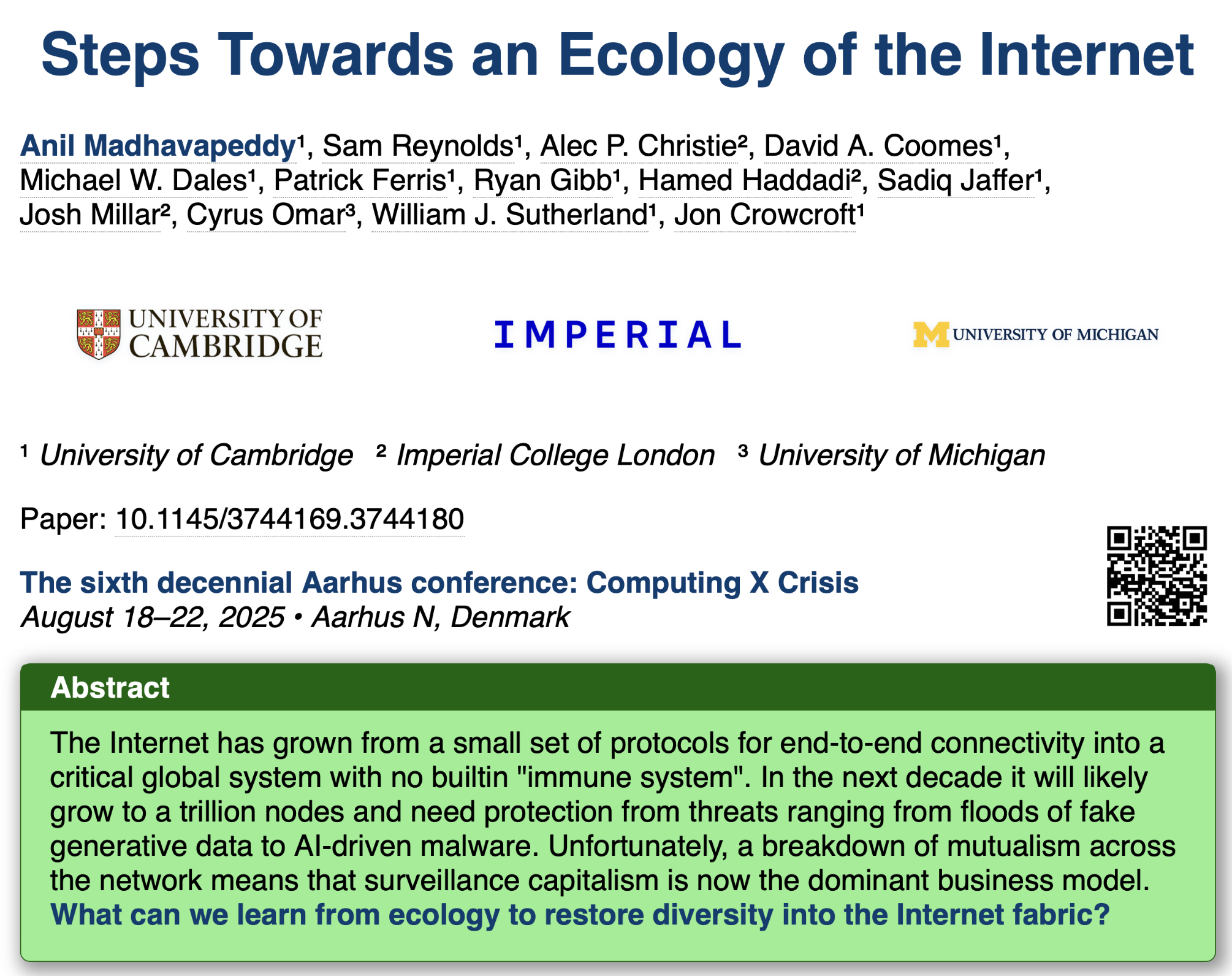That's a wrap for the next decade with Aarhus 2025, where I presented our paper on "Steps towards an Ecology for the Internet". I was a little unsure about how to approach the presentation, largely because the ideas seem a little crazy if they'd been proposed even a year ago! Luckily my co-authors strengthened my spine with encouragement and gin, and the event was tremendous fun packed with useful insights.
Our key observation is that the Internet is dangerously ossifying into monocultures at multiple levels. Inspired by wild ecosystems, we're proposing mixing in more natural selection into edge deployments by using AI code models to mutate end-hosts and tailor them to their environment. Generative AI is notoriously unpredictable, which turns out to be a useful property if you actually want more local software diversity! For example, this lets us cook up "antibotty" networks that fight back against global viruses via locally adapted vigilantes (antibodies).
Beyond just making thing more resilient, injecting more software diversity gives us the hooks to make computers in our environment do what we actually want them to. To quote Mark Weiser, "the world is not a desktop", and computers should be so ubiquitously blended into our day-to-day lives that they are invisible to the user. We're getting further away from that dream every day with the monotony of the FAANG software monocultures, and a wild west of botnets sweeping through billions of devices.
Since this conference only happens once a decade, I put myself in the right mindframe by reading through my old ideas and seeing how they had aged. I was struck by how much Databox (2015), Droplets (2011) and Digital Yurts (2009) all stood up surprisingly well[1] in 2025. This time around, we have a fresh edge with the rise of coding models and a relative glut of edge computation. The question is how to harness these new technologies for the health of the Internet and not yet more central lockin.

1 Discussions with the audience
The talks were arranged in a panel with three other great speakers, who discussed crises through the lenses urban gardening, computing supply chains and two-loops models of change. There were some thought-provoking questions from the audience!
Firstly, is framing these questions as a "crisis" just saturating us with a constant bombardment of problems we need to react to? Should we be building more (emotionally and systemically) sustainable platforms for engendering change? I certainly agreed with this, but I don't yet have a clear sense of what this means, beyond finding Our World In Data an inspiration of how fun data exploration can be.
A couple of things I need to follow up on reading:
- Computing as Ecocide was a paper at the LIMITS workshop, which I hadn't heard off before. This seems like a complement to PROPL coming up in October.
- Robin Sloan is an author who combines old and new tech in fun ways.
- Approaches to directly deal with "eco-anxiety" while teaching sustainability.
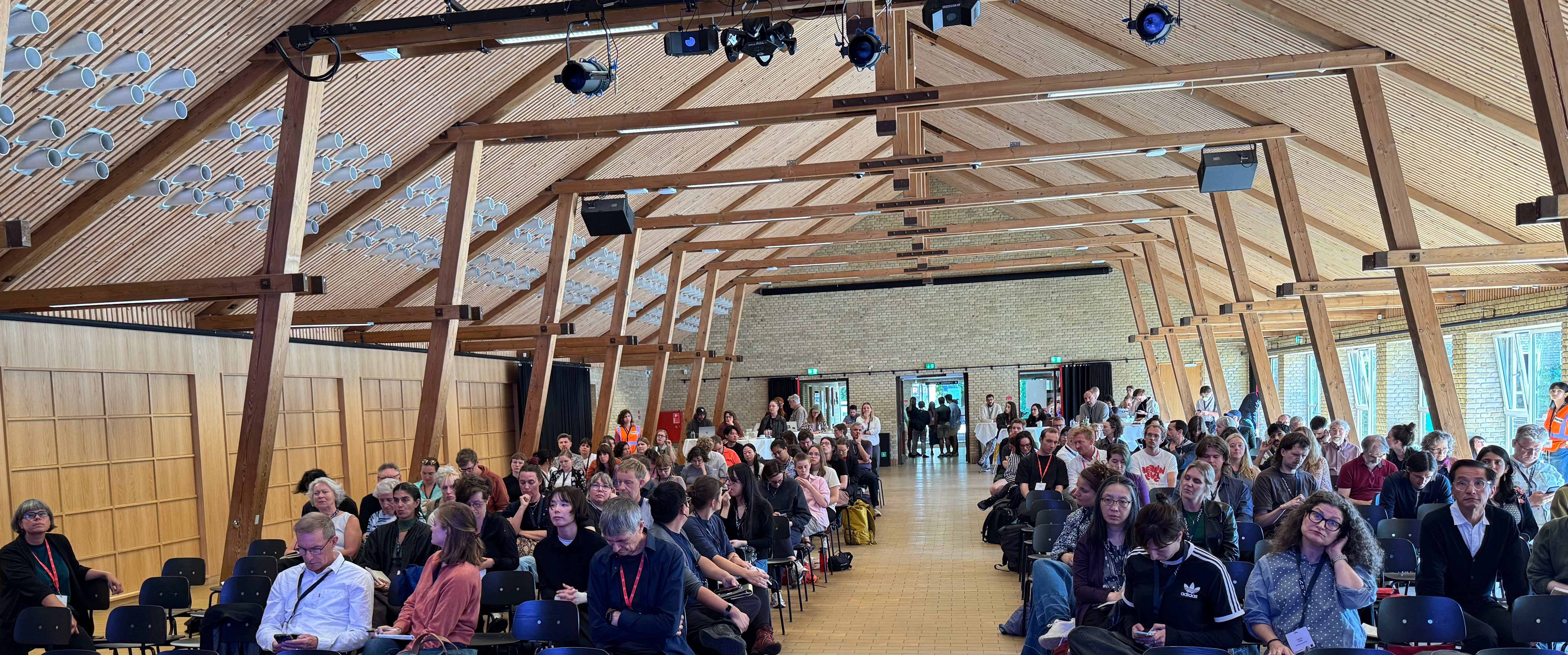
1.1 Inversely proportional voting
The stage discussion then veered into the role of lifecycles in these cultural systems. An audience member asked about the role of biological mutualism and cooperation in any future digital framework, and I pointed out some examples from our paper about how cooperative ensembles in nature can be very stable, but also do not have to last forever. When applying this "nihil aeternum est" principle to human systems, how sacrosanct are concepts like "democracy" as we move forward? If our views on these institutions remain unchanging, then they will also become brittle and collapse as the context in which they operate changes into a hot crowded world mired in polycrises.
This let me bring out an idea I've been ruminating on for a while. While the principles of equal suffrage are vital, one dimension where we could relax it is for intergenerational representation. One issue with taking political decisions for the long-term is that wealth pools with the old, who have far less to gain from long-term thinking than the young[2] voters. So why are the young so underrepresented? Imagine a completely made up voting system that looked like this:
A voting system assigns each individual a number of votes inversely proportional to their age. An 18-year old will have the maximum number of votes, and they gradually degrade until anyone age 70 or higher gets just one vote. The number of votes decay rapidly with age, so that every year the new 18-year old cohort will control (say) 40% of the total vote. This sort of system ensures that the older generations (where wealth pools) must educate the newly minted voters every year, or risk losing control of their agendas. -- Anil's entirely made up voting system
I've found some variations of the theme, like Demeny voting that gives parents a proxy vote for their children or even cases for disenfranchisement of the elderly. But neither of these quite capture what I have in mind, which is to build intergenerational education firmly into how our society operates. If 40% of the entire voting block appears newly every year, then education on civic matters need to happen like clockwork and be incorporated into our curriculums.
But of course, there are huge barriers to trying out these experiments in civic society. But there are no such barriers to running these experiments in microcosms of common pool resources or even on digital systems. So after these fascinating conversations at the conference, I'm going to think about the Cambridge Green Blue and apply it there.
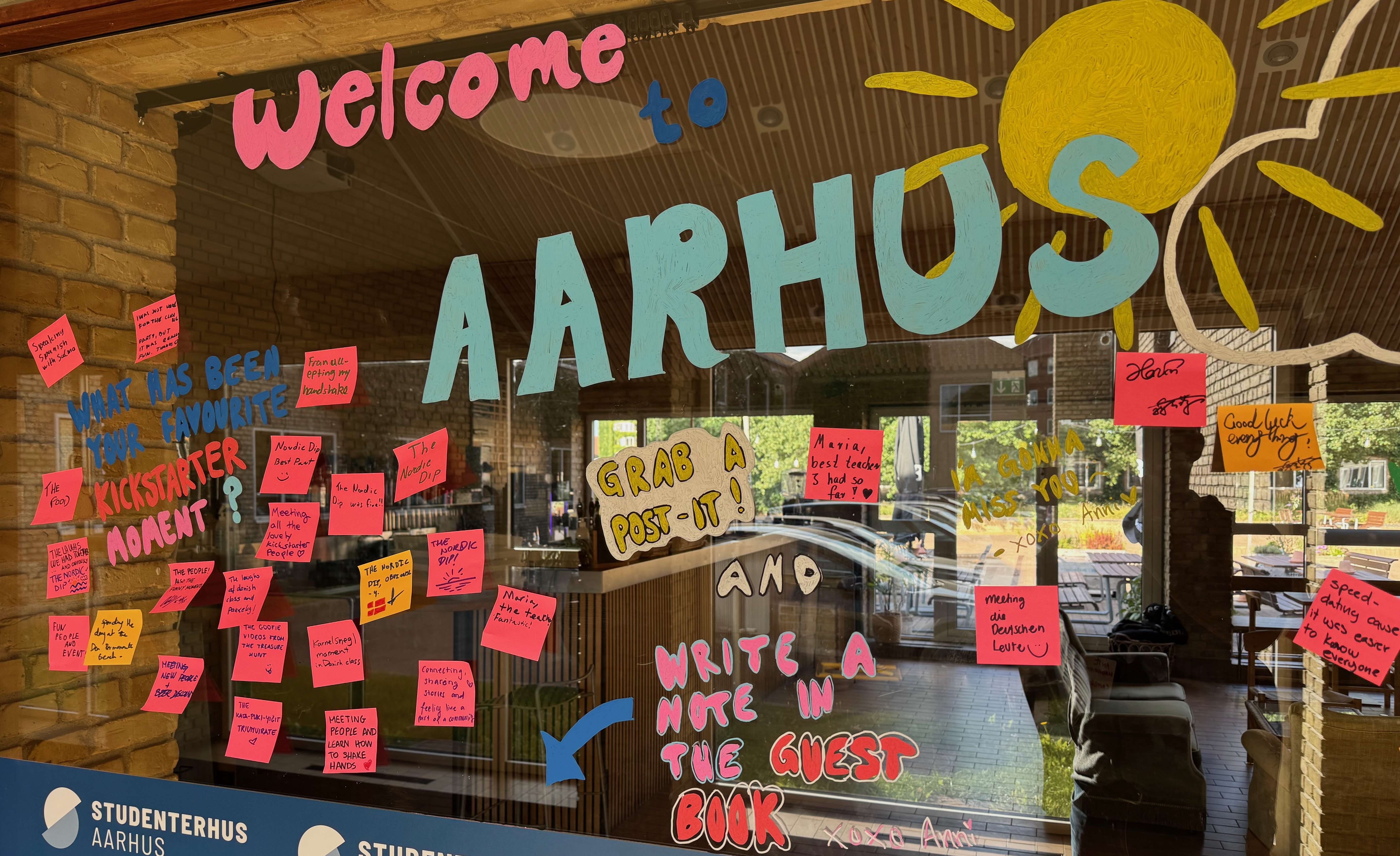
1.2 Self hosting is really far behind
I was also struck by how far behind self-hosting is, even among an audience that should be heavily in favour of it. I think my talk was one of only a few that mentioned BlueSky and the Fediverse, and alternative communication mechanisms. I also demoed Claude in a corner to show how it could help manage infrastructure that would ordinarily take a sysadmin, but could now be reasonably handled by a non-expert (with care!).
One of the attendees commented to me afterwards that they remembered the Databox talk from a decade ago, and wondered why it hadn't taken off. Maybe now is the time for Ryan Gibb's work on digital islands to hit the mainstream! They've certainly never been needed more than now; I am deeply glad to see my colleagues like Jon Sterling also working on solutions in this space.
1.3 Presenting in Slipshow
In the spirit of self-hosting, I also used the great new
Slipshow tool (that uses
js_of_ocaml) to write the
presentation. Slipshow lets the presentation be written in
Markdown,
and I used Claude Code to handle all the styling for me. The whole presentation
took about an hour to put together, and can be viewed
standalone as a single web page as it
inlines all the assets.
Using HTML/JS/CSS for talks is really convenient, so I'm sold on using Slipshow
for my upcoming presentations this year! It's also excellent to be using
js_of_ocaml. I think the only thing on my "wishlist" is to be able to run a
headless browser and output PDF snapshots of each of the slips. I'm also not
yet sure how my 100MB videos will encode, but I'll figure that out ahead of my
next talk (in the Royal Society at the start of September to the Austrian
government). The author of the software, Paul-Elliot also
kindly reached out to get feedback, and I was really pleased to see his work
was supported by the NGI Commons Fund!
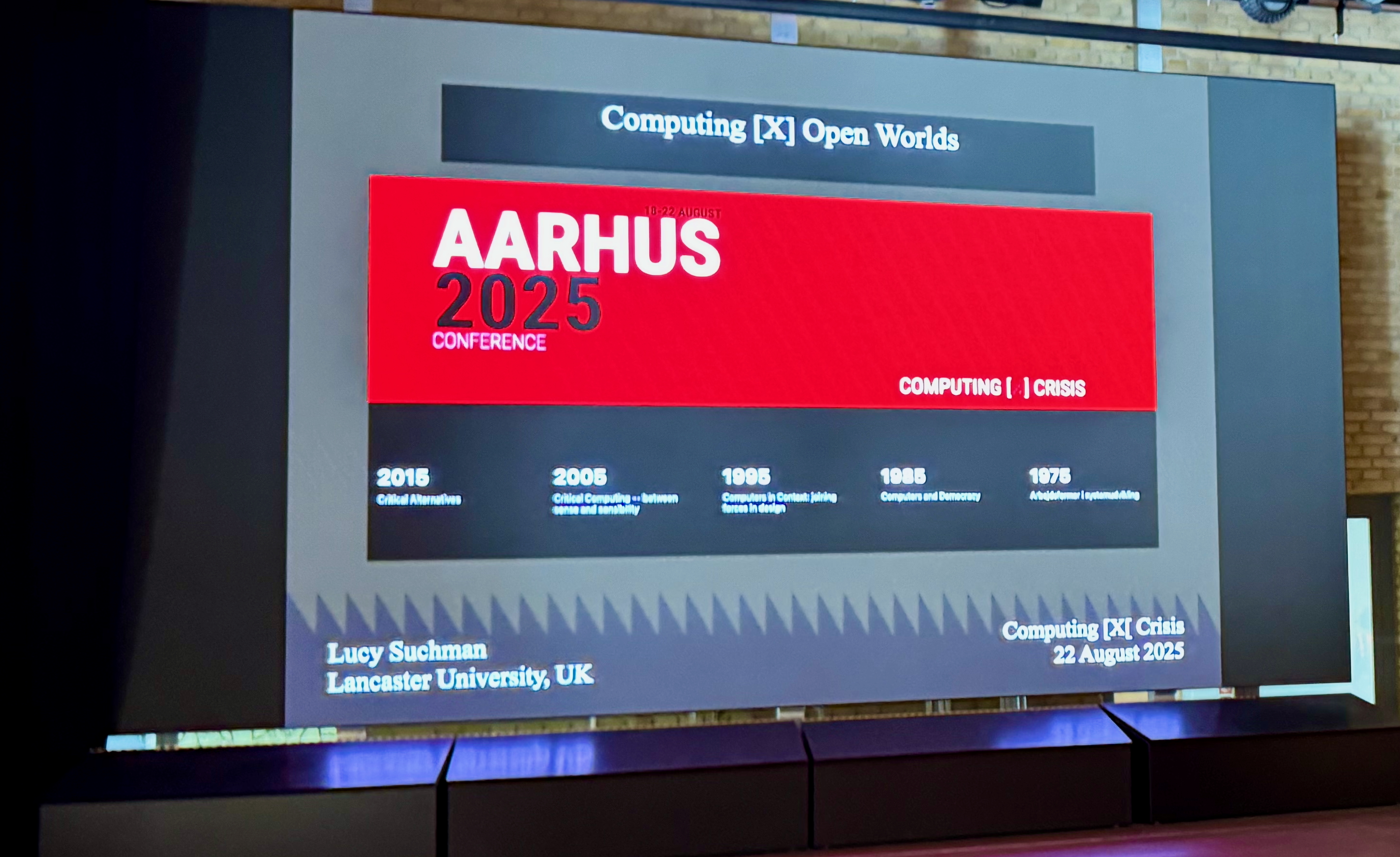
2 The city of Aarhus
Aarhus is also a spiritual twin city to Cambridge. It was a gorgeously sunny week, with bicycles available everywhere and a lovely Latin quarter to hang out in.

The venue itself at Aarhus University was really nice to explore and see what the students are up to. Lots of music and creative arts in the same area. When I was here last year to present at Matchpoints we were at the Modern Art museum, and the amount of new building work in the city was remarkable to see. There was also a lovely forest park I went for an early morning jog in to get some nature!
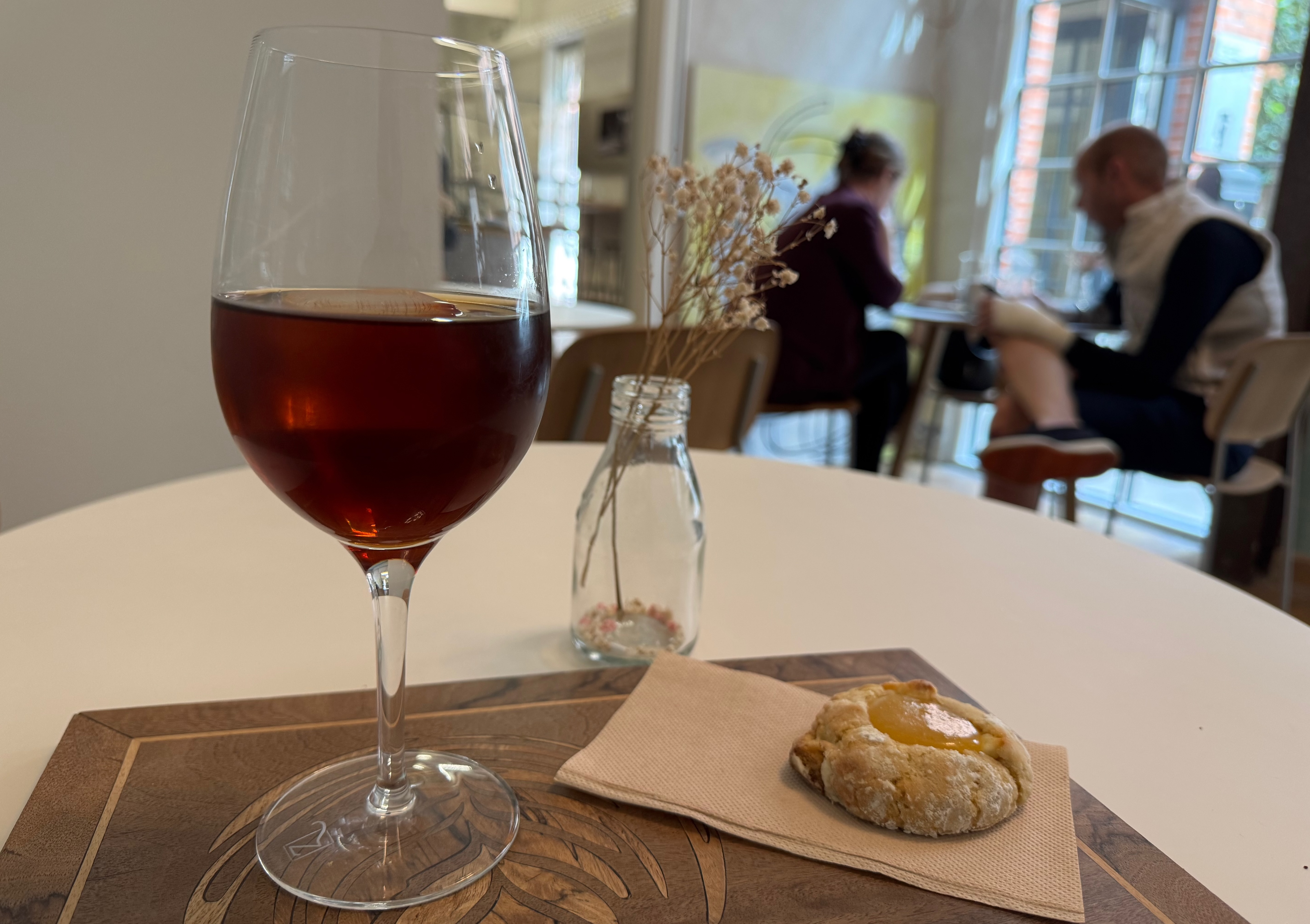
Read more about Steps towards an Ecology for the Internet.
-
Not coincidentally, most of these ideas were cooked up with Jon Crowcroft somewhere in the picture at a nearby pub.
↩︎︎ -
We used the ideas of discount factors to adjust for impermanence in our forest carbon work in Nature Climate Change a few years ago too.
↩︎︎

